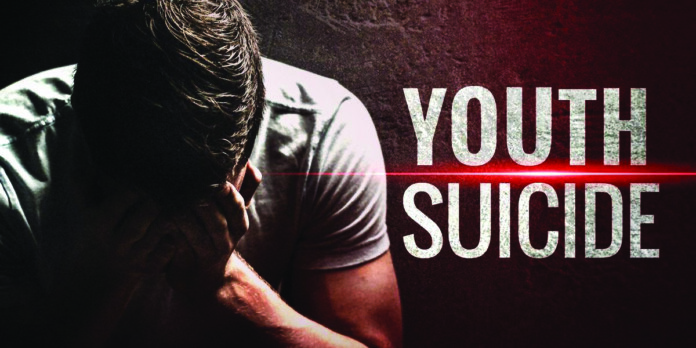
Suicide is the second-leading cause of death among teens and young adults ages 10 to 34, according to the Centers for Disease Control (2022).
 The second-leading cause of death.
The second-leading cause of death.
Our youth are choosing to end their own lives before they have had a chance for it to really start.
Why? Why are they hurting so much? And more importantly, why are they not reaching out for help?
Maricopa has experienced at least six teen/young adult suicides since last fall.
Six deaths in Maricopa alone.
Our youth are hurting, and as a community, we must step up and do more to help them. If you are a parent, talk to your teens. If you are a teacher, reach out to your students. If you are a youth leader, open the conversation with your youth-group members.
If you are in contact with any teenager, be their support. Be their strength. Be their cheerleader. You never know what they may be experiencing in another area of their life and your simple support could mean the absolute difference for them.
Parents! I know we all like to think that our children won’t be a statistic. We like to think the smile we see on our teen’s face is authentic and that they could never contemplate suicide. We like to think we have educated our children enough on how to deal with depression and on the resources available. We like to think that we have an open relationship with our children, that they will talk to us about anything. We like to think that we could never lose our child.
We must stop thinking that! We may have great relationships with our children and we may see them smiling, but we truly have no idea what is going on in their heads. We need to consistently open the conversation with our teens to discuss the tough topics such as relationships, bullying, self-esteem, sex, school, etc. Our teens learn from us and if we aren’t doing everything in our power to try and help them, how can we expect them to always take the initiative to help themselves? Most of the time, our teenagers do not want to feel like a burden on their parents.
It is OK to discuss the tough topics. It is OK to have uncomfortable discussions. These are the discussions our teens need more than anything they are being taught in school. They need to learn how to take care of themselves emotionally and mentally.
It can be scary at times opening the conversation of suicide with our teens. We may worry that by bringing up the topic, we are giving them ideas. This couldn’t be further from the truth. Our teens are having discussions about topics that we could never imagine, including suicide, sex and drugs. Having healthy conversations about these topics is what makes all the difference.
Here are tips to help open that conversation with a teenager:
- Lean in — Body language is a critically important element of healthy and productive conversations. If the other person gets the impression you are not engaged, they will shut down quickly.
- Know your resources — You should know what is available for professional help in your area.
- Get comfortable feeling uncomfortable — Have discussions that aren’t always easy. Bring up the tough topics.
- Create a safe place — Be judgment free. Make sure they are in a place they feel comfortable openly discussing these topics. Ensure they know you are a safe person to be talking to, as well.
- Start with “I’ve noticed….” — This is a great way to open the conversation if you’ve noticed your teen has been “different” lately. You are not accusing them of anything, but simply letting them know you’ve seen a change and are worried about them.
- Ask open-ended questions — If all your questions are “yes” or “no,” then your teen won’t have to provide much detail and you will leave the conversation just as confused. Start your questions with words like, “How” and “Why.”
- Practice active listening — Put your cellphones away. Turn the TV off. Make sure you are giving your full attention to your teenager throughout the entire discussion. Don’t wait to answer and instead listen to what they are saying.
If during any conversation your teen makes a statement that they are contemplating suicide, thank them before you do anything. This can be extremely scary for them. By thanking them, you are letting them know how much it means to you that they confided in you and remind them that you will help them through every step of the way. You can then reach out to your nearest crisis center, call 988 (National Suicide Hotline), or contact 911. You can also take them to any local ER for an assessment. Please feel free to check out our website for additional resources and information, as well.
Brianna Reinhold, LPC and CFRC, is owner and clinical director of Northern Lights Therapy, PLLC.
This column was previously published in InMaricopa Magazine.

![Maricopa’s ‘TikTok Rizz Party,’ explained One of several flyers for a "TikTok rizz party" is taped to a door in the Maricopa Business Center along Honeycutt Road on April 23, 2024. [Monica D. Spencer]](https://www.inmaricopa.com/wp-content/uploads/2024/04/spencer-042324-tiktok-rizz-party-flyer-web-218x150.jpg)



![Locals find zen with Earth Day drum circle Lizz Fiedorczyk instructs a drum circle at Maricopa Community Center April 22, 2024. [Brian Petersheim Jr.]](https://www.inmaricopa.com/wp-content/uploads/2024/04/PJ_3922-Enhanced-NR-218x150.jpg)


![Shred-A-Thon to take place tomorrow An image of shredded paper. [Pixabay]](https://www.inmaricopa.com/wp-content/uploads/2024/03/shredded-paper-168650_1280-218x150.jpg)



![Alleged car thief released without charges Phoenix police stop a stolen vehicle on April 20, 2024. [Facebook]](https://www.inmaricopa.com/wp-content/uploads/2024/04/IMG_5040-218x150.jpg)
![3 things to know about the new city budget Vice Mayor Amber Liermann and Councilmember Eric Goettl review parts of the city's 2024 operational budget with Mayor Nancy Smith on April 24, 2024. [Monica D. Spencer]](https://www.inmaricopa.com/wp-content/uploads/2024/04/spencer-042424-preliminary-budget-meeting-web-100x70.jpg)


